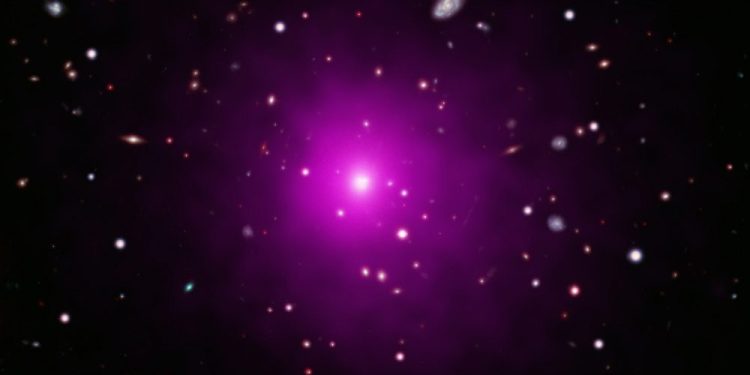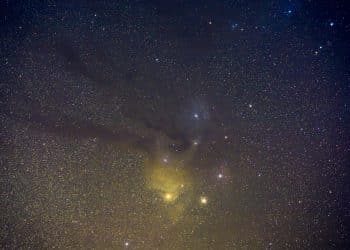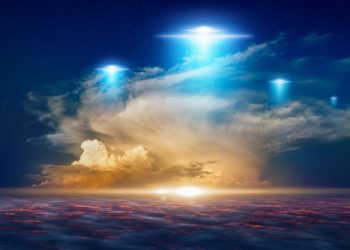Yes, you read that correctly – scientists confirmed that a black hole is missing. And more curiously, not any black hole but one of the presumably largest supermassive black holes known to science. Let’s discuss the facts.
Who knows how many galaxies there are in the universe? What we know is that most large galaxies should have their own supermassive black hole. We also know that each of these black holes should correspond to the actual mass of its galaxy.
This takes us to the largest galactic nucleus astronomy has ever found – Abell 2261, a cluster galaxy 10 times larger than the Milky Way in diameter.
For years, experts had expected to find a supermassive black hole in its center but after 20 years of research and observations, no such object has been found.
The initial research on the region was conducted around 20 years ago but could not find or prove anything.
A deeper search for this supermassive black hole was conducted in 2018 but again – the team of scientists could not find this black hole.
Scientific Theories and Possible Explanations for the Missing Black Hole
The main hypothesis is that the black hole got ejected away from the cluster galaxy. However, if it somehow flew into space, why haven’t experts locate any tracks from this movement in the region.
This theory also suggests the possibility that the missing supermassive black hole merged with the black hole of a different galaxy. If this could happen, it would also be possible that the gravitational waves of this merge could push the missing black hole away from the center.
The problem with this theory is that science is uncertain whether it is even possible.
By far, astronomers have only confirmed that small black holes can definitely merge. As for supermassive ones, science has not yet caught such an event and the current scientific explanations suggest that this may actually not be possible.
Another possible solution suggests that this missing black hole may simply be more inactive than usual. Simply said, observations of a black hole are possible only when it is actively accreting matter.
Our Take on the Subject
When discussing such discoveries or more specifically – mysteries, as I consider a missing black hole a true cosmic mystery, I like to express my own opinion either based or against the scientific facts.
First of all, do astronomers even know that there is a black hole in the cluster galaxy? How can there be a missing black hole when there is no definitive answer that there actually was one recently. As the team of scientists confirmed, there has not been any black hole activity in the region for 48 million years. This, of course, may be a short period in the cosmic understanding of time but it also means that this black hole could have disappeared a long time ago.
And still, most galaxies have their own black hole, whether it is a small one or a supermassive one like this one would have to be. My personal opinion is that our current technology and the telescopes we have are simply not advanced enough to locate it. How can we expect Hubble or Chandra to be able to see everything in the universe when it is clearly not possible.
I believe quite some time will pass before we hear anything new about this missing black hole. Perhaps the upcoming James Webb Space Telescope which should be launched in 2021 unless there are delays will have the necessary capabilities to locate this supermassive black hole. For now, we can only wait.
Join the discussion and participate in awesome giveaways in our mobile Telegram group. Join Curiosmos on Telegram Today. t.me/Curiosmos
Sources:
• Gultekin, K., Burke-Spolaor, S., Lauer, T., Lazio, T., Moustakas, L., Ogle, P., & Postman, M. (2020, October 27). Chandra Observations of Abell 2261 Brightest Cluster Galaxy, a Candidate Host to a Recoiling Black Hole.
• Photo Album :: Abell 2261 :: December 17, 2020. (n.d.).
• Mohon, L. (2020, December 17). On the Hunt for a Missing Giant Black Hole.
• Starr, M. (n.d.). Somehow, a Monstrous Supermassive Black Hole Has Gone Missing.
• A supermassive black hole is missing, NASA says. (2020, December 17).











